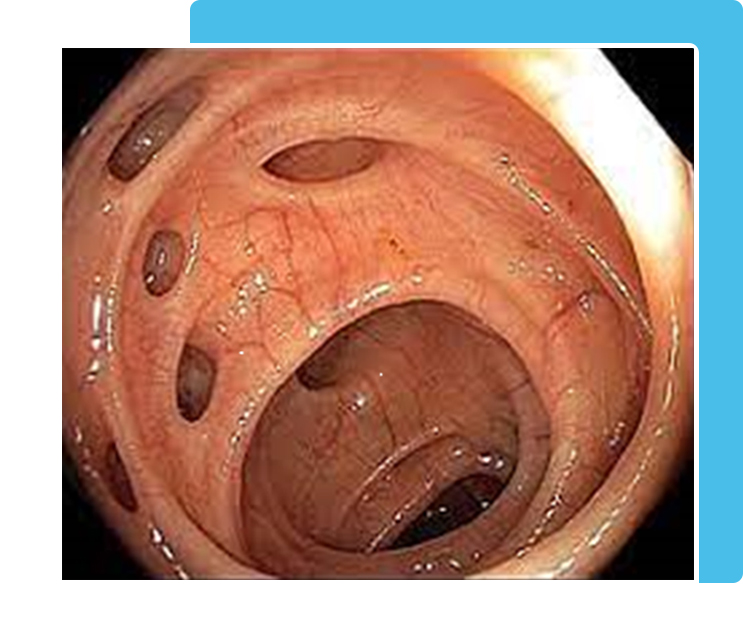

Diverticular disease ( Also called diverticulosis) is a common condition in western countries where small pouches or pockets form in the wall of the large bowel (large intestine). The pockets are called diverticula. It is most common in the left sided colon (sigmoid colon), can affect any part of large colon. Diverticulitis occurs when diverticula tear, resulting in inflammation, and in some cases, infection
It is present in 10% of those age 40 and increases to over 50% at age 60. It’s a benign condition and does not cause cancer. It can be considered a consequence of wear-and-tear from pressure in the bowel. It is believed that modern western diet is low in fibres. This results in a less bulky stool, and the bowel then has to work harder and exert higher pressures to move the stool through the colon. Over time, these increased pressures result in the formation of a thick muscular bowel wall, which generates even higher pressures. Eventually, diverticulae form at the weakest point of bowel wall where blood vessel enters the bowel wall.
Diverticulitis is a complication of diverticulosis and occurs when diverticula tear (rupture), resulting in inflammation or infection. It affect only 10-15 % of people with diverticulosis and can be simple or complex. A complicated diverticulitis can be associated with free rupture resulting in peritonitis, abscess formation, fistula formation with nearby structures like urinary bladder or stricture in colon resulting in large bowel obstruction.
Diverticulitis is usually associated pain in abdomen, typically left lower abdomen. The pain can be all over abdomen in severe cases. It can be associated with feeling unwell, nausea, vomiting, loss of appetite and fever.


Diagnosis is usually clinically suspected and confirmed with CT scan.
Uncomplicated diverticulitis is usually managed with initial bowel rest, analgesia and antibiotics. The Complicated diverticulitis may require antibiotics alone, drainage of any abscess, and sometimes emergency surgery. Elective surgery for diverticular disease may be required if selected cases due to recurrent episodes of diverticulitis affecting quality of life and those associated with stricture or fistula formation. A colonoscopy is typically done before surgery to rule out any sinister pathology like bowel cancer.
All Copyrights © 2023 Dr. Kaushik Kumar
Powered by :: Growup Business Solution